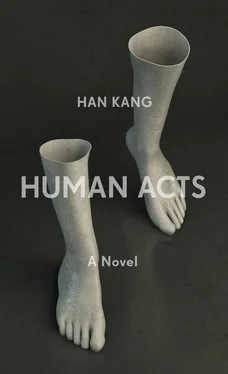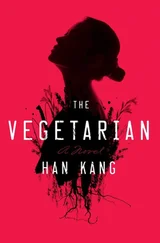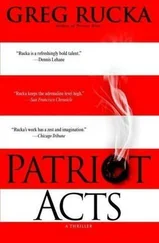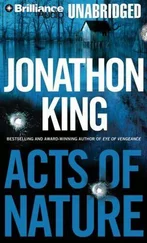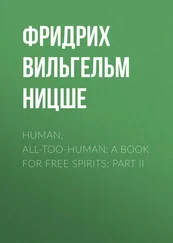Han Kang - Human Acts
Здесь есть возможность читать онлайн «Han Kang - Human Acts» весь текст электронной книги совершенно бесплатно (целиком полную версию без сокращений). В некоторых случаях можно слушать аудио, скачать через торрент в формате fb2 и присутствует краткое содержание. Год выпуска: 2016, Издательство: Portobello Books, Жанр: Современная проза, на английском языке. Описание произведения, (предисловие) а так же отзывы посетителей доступны на портале библиотеки ЛибКат.
- Название:Human Acts
- Автор:
- Издательство:Portobello Books
- Жанр:
- Год:2016
- ISBN:нет данных
- Рейтинг книги:4 / 5. Голосов: 1
-
Избранное:Добавить в избранное
- Отзывы:
-
Ваша оценка:
- 80
- 1
- 2
- 3
- 4
- 5
Human Acts: краткое содержание, описание и аннотация
Предлагаем к чтению аннотацию, описание, краткое содержание или предисловие (зависит от того, что написал сам автор книги «Human Acts»). Если вы не нашли необходимую информацию о книге — напишите в комментариях, мы постараемся отыскать её.
Human Acts
Human Acts — читать онлайн бесплатно полную книгу (весь текст) целиком
Ниже представлен текст книги, разбитый по страницам. Система сохранения места последней прочитанной страницы, позволяет с удобством читать онлайн бесплатно книгу «Human Acts», без необходимости каждый раз заново искать на чём Вы остановились. Поставьте закладку, и сможете в любой момент перейти на страницу, на которой закончили чтение.
Интервал:
Закладка:
Only a portion of the emergency department is visible from where you are sitting, but this is constantly lit by the harsh glare of strip lighting. Someone starts moaning, either a child or a young woman. Impossible to tell. Then the raised voices of a middle-aged couple, most likely the parents. Hasty footsteps, and you see a nurse running.
You shoulder your backpack, stand up and walk outside. Two ambulances, their emergency lights off, are huddled together beneath a chill light. The wind has lost its clammy warmth. Finally, the heat has abated.
You walk along the tarmac for a while, then step to the side, onto the grass where it is apparently forbidden to tread. You take a diagonal line across the grass, heading for the main building. Your trainer socks leave your ankles exposed, brushed by the tips of the moisture-beaded grass. You inhale deeply, the impending rain bringing out the rich, loamy base notes of the soil. About halfway across the grass, the faces of the two girls slide into your mind. Lying side by side, a banner resting on their chests. Their sleepy faces as they lift the banner up over their heads and put it aside, rise to their feet and come stepping lightly over the grass. Your throat is dry. There is a bitter taste at the back of your mouth, even though you brushed your teeth only an hour ago. What lies beneath the dark grass, what you are continuing to tread on, seems not soil but fine, sharp splinters of glass.
UP RISING
After that night, I stopped hanging the wet towel on the door handle.
And yet all through that winter, and even in the spring, when the air was no longer so dry and there would have been no need for a wet towel anyway, I continued to hear that sound, seeming to come from just the other side of the door.
Even now, those occasional times when I manage to awake from a sleep that was free from nightmares, I hear it.
Each time, my eyes tremble open and I face out into the darkness.
Who is it?
Who’s there?
Who is coming towards me, and with such soft footsteps?
YOU REMEMBER
All the buildings have their shutters down.
All the windows are closed and locked.
Suspended above the darkened street, the seventeenth-day moon hangs in the sky like an eyeball formed of ice, peering down on the van you are riding in.
It was mainly the female students who rode around with megaphones to do the street broadcasts. When those with you were completely spent, when they said it felt as though their throats had closed up and could no longer produce anything louder than a whisper, you took over for forty minutes. Brothers and sisters, please turn on your lights. That was the kind of thing you said. Addressing the blind windows, the deserted alleyways. For God’s sake, please just turn on your lights.
The reason the soldiers let you ride around broadcasting all day, waiting until the dead of night before forcing your van to a halt and arresting all its occupants, only occurred to you later: they simply hadn’t wanted to expose their movements. The women, the ones who’d been doing the actual broad-casting, were hauled off to the cells at Gwangsan police station, while the man who had been in charge of driving was taken to the military school. You were carrying a gun at the time of your arrest, and so you were kept separate from the other women, and transferred to the custody of the military police.
There, the only name by which you were referred to was ‘Red Bitch’. Because you used to be a factory girl, and had been involved in the labour union movement. Their script decreed that the four years you’d spent at a dressmaker’s in what they called ‘a provincial city’ had been a mere cover, that you were a spy sent down from the communist North. It was to elicit the confession that would confirm these accusations that they had you lie down on the table in the interrogation room, day after day. Filthy Red bitch. Scream as much as you like, who’s going to come running? Tube lighting flickered along the ceiling of the interrogation room. Beneath the flat, banal brightness of that perfectly innocuous light, they kept at you until the haemorrhaging had gone on for so long you were finally released from feeling.
Around a year after you got out of there, you saw Seong-hee again. You went to the Industrial Mission Church to ask after her whereabouts, got in contact and arranged to meet at a noodle place in Guro-dong. Listening to your story, she seemed surprised.
‘It never even occurred to me that you might be in prison. I just presumed you were living quietly somewhere, trying to put the past behind you.’
Repeated stretches either in prison or on the run, arrested and later released only to be pursued again for further acts of agitation, had left Seong-hee’s cheeks so sunken she was barely recognisable as the same person. She was twenty-seven when you met her then, and could easily have passed for ten years older. She stayed silent for a while, as the steam rose from her cooling noodles.
‘Jeong-mi disappeared that spring; did you know?’ This time you are the one to look surprised. ‘I heard she helped out with the union for a while. We were blacklisted, of course, so she quit her job at the factory before they had the chance to lay her off. After that, I didn’t hear anything more … in fact, I only recently heard about her disappearing. The woman who told me used to attend night classes with her when they both worked at a textiles factory in Gwangju.’
You stare, mute, at the shapes formed by Seong-hee’s mouth. As though your mother tongue has been rendered opaque, a meaningless jumble of sounds.
The words you are struggling for refuse to come. You can’t even remember the girl’s face with any clarity. The effort to remember is wearing you out. Fragments surface momentarily, only to disappear from whence they came. Pale skin. A compact set of small white teeth. I want to be a doctor.
Nothing else.
UP RISING
I went back to Gwangju to die.
For a little while after I got out of prison my older brother let me stay with him out in the countryside, but the police had his address on file, and their twice-weekly visits were too much for me.
One morning in early February, when the sun hadn’t yet come up, I put on the smartest clothes I had, packed a bag with a few basic necessities and went out to catch one of the intercity buses.
At first glance the city looked as though it hadn’t changed a jot. But it didn’t take me long to see that actually, nothing was the same any more. There were bullet holes in the outer wall of the Provincial Office. The people moving through the streets in their sombre clothes all had something twisted about their faces, as though they were contorted with transparent scars. I walked among them, my shoulders jostling theirs. I didn’t get hungry, didn’t get thirsty, and my feet didn’t get cold either. It seemed like I could have gone on walking that whole day through, all through the night until the sun came up.
That was when I saw you, Dong-ho.
I was looking at the photos some students had recently pinned up, on the wall of the Catholic Centre on the main road leading to the Provincial Office.
The police were a constant menace. Even then, I was aware that one of them might be hiding nearby, watching me. I hurriedly pulled one of the photos down, rolled it up tight and clenched it in my fist. I crossed the main street and disappeared down an alleyway. There was a sign for a music cafe, so I hastened up the stairs to the fifth floor, took a seat in the cavernous room and ordered a coffee. I sat there stock-still until the waiter had set my coffee down in front of me and left me alone. The acoustics were excellent in such a large space, yet I was hardly aware of a single note. It was like being submerged in deep water. Eventually, once I was sure that I was completely alone, I unclenched my fist and smoothed out the photograph.
Читать дальшеИнтервал:
Закладка:
Похожие книги на «Human Acts»
Представляем Вашему вниманию похожие книги на «Human Acts» списком для выбора. Мы отобрали схожую по названию и смыслу литературу в надежде предоставить читателям больше вариантов отыскать новые, интересные, ещё непрочитанные произведения.
Обсуждение, отзывы о книге «Human Acts» и просто собственные мнения читателей. Оставьте ваши комментарии, напишите, что Вы думаете о произведении, его смысле или главных героях. Укажите что конкретно понравилось, а что нет, и почему Вы так считаете.
